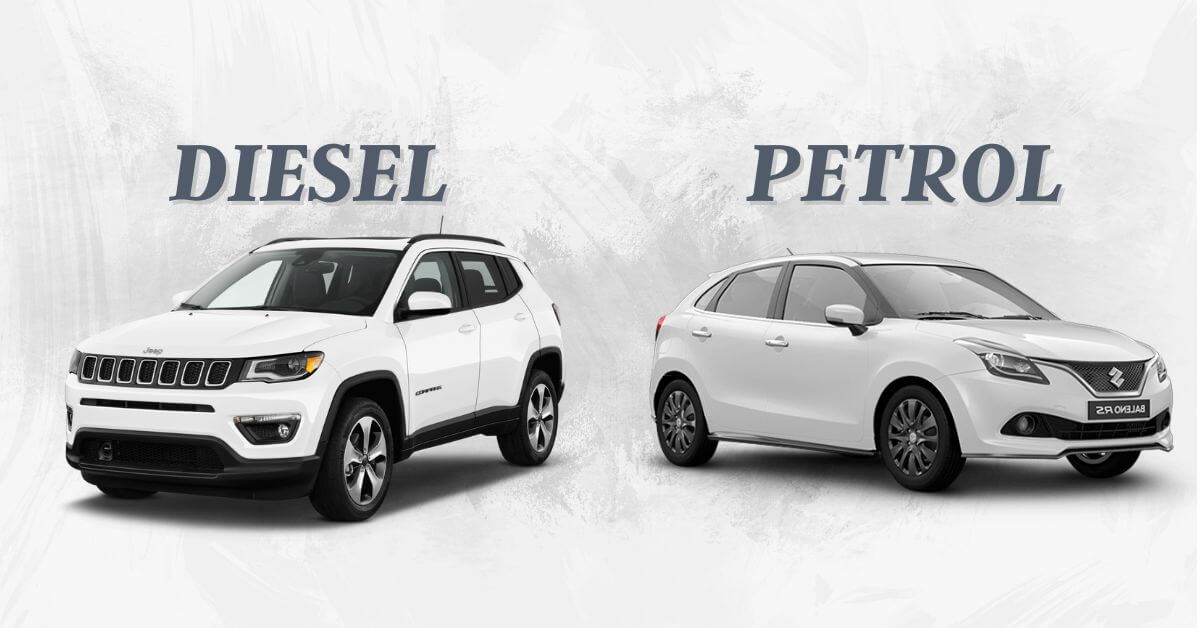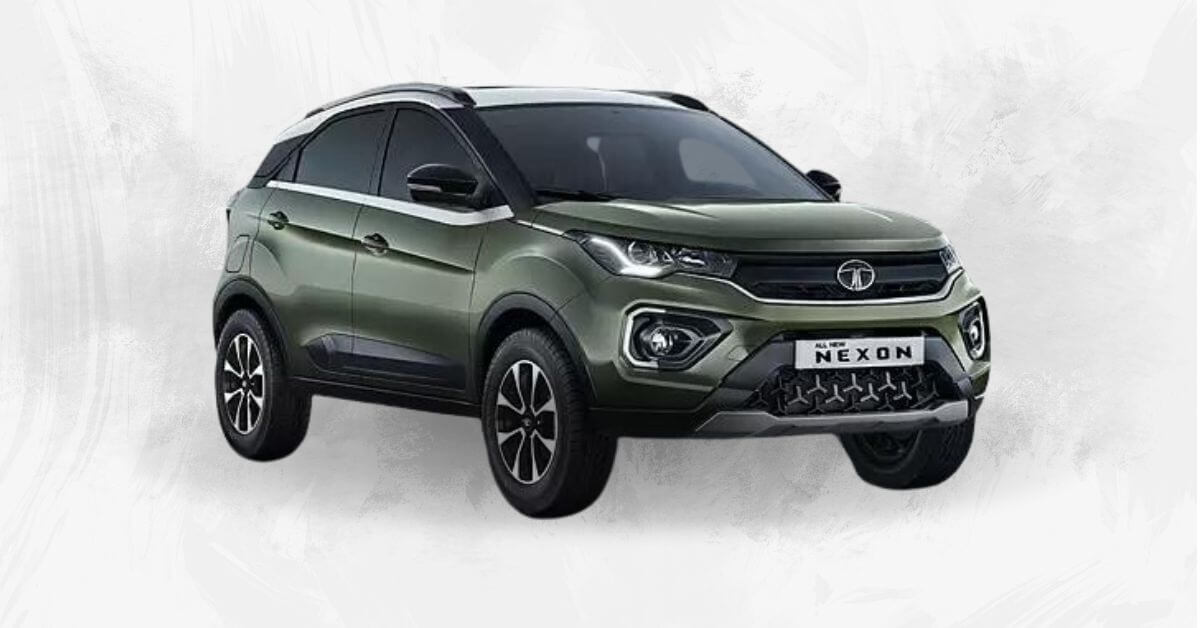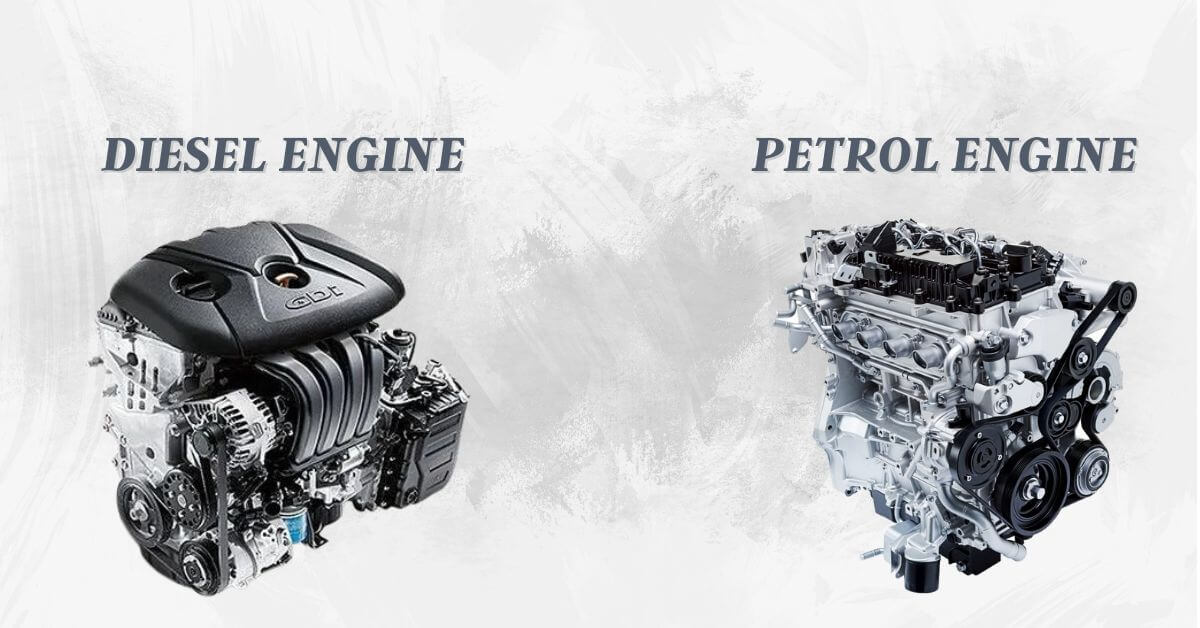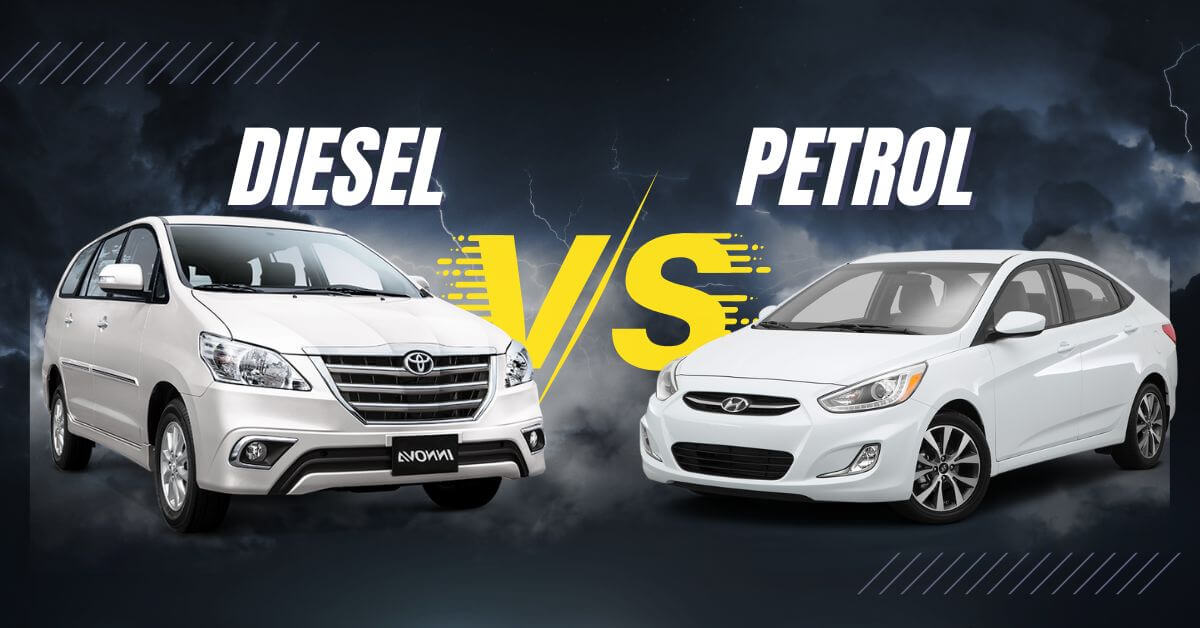Diesel vs petrol cars – Which one should you choose? This is a common question that arises when considering a new car purchase.
To make an informed decision, it’s important to understand the key differences between petrol and diesel vehicles. Each option has its own advantages and disadvantages, and the choice ultimately depends on your specific needs and requirements.
In this article, we will outline the key distinctions between petrol and diesel cars to assist you in selecting the most suitable option. Read on to discover more about the comparison between petrol and diesel cars.
Choosing the Best Car Fuel Option: Diesel Vs Petrol Cars?
Are you a car enthusiast struggling to decide between diesel and petrol fuel options? Look no further! In this blog post, we’ll examine the pros and cons of both to help you make an informed decision that meets your needs. Let’s Start without any further delay.
1. Fuel Efficiency
- Diesel cars tend to have higher fuel efficiency and can provide more mileage per liter of fuel compared to petrol cars. This makes them a suitable choice for long-distance driving or frequent travelers.
- Petrol cars have improved their fuel efficiency over the years but generally offer lower mileage compared to diesel cars.
2. Initial Cost
- Petrol cars typically have a lower purchase price compared to diesel cars. They are generally more affordable, making them a viable option for those on a budget.
- Diesel cars often come with a higher initial price due to their advanced technology and better fuel efficiency. However, this cost difference may be offset by savings in fuel expenses in the long run.
3. Running Costs
- Diesel fuel is usually priced higher than petrol, which affects the overall running costs. However, the higher fuel efficiency of diesel cars can help offset the increased fuel prices to some extent.
- Petrol cars have lower fuel prices but may require more frequent refueling due to their lower mileage. This can lead to higher running costs, especially for individuals who cover long distances regularly.
4. Performance
- Petrol cars are known for their smoother and more responsive acceleration, making them ideal for city driving and shorter commutes.
- Diesel cars, on the other hand, offer more torque, which results in better pulling power and can be advantageous for towing or carrying heavy loads.
5. Environmental Impact
- Petrol cars generally produce lower levels of particulate matter and nitrogen oxides compared to diesel cars, making them slightly more environmentally friendly.
- Diesel cars have traditionally been associated with higher emissions, but modern diesel engines have improved in terms of reducing harmful pollutants.
Still Confused? No need to worry, let’s dive into the difference between diesel and petrol cars.
Exploring the Distinctions Between Diesel And Petrol Cars

Here are the key differences between petrol and diesel cars –
Petrol Cars:
- More affordable than diesel cars.
- Lower service and maintenance costs.
- Lower fuel efficiency/mileage.
- Lower NVH (Noise, Vibration, and Harshness) levels.
- Good initial acceleration with linear power delivery.
- Produce less pollutant particulate matter, making them more eco-friendly.
- Shorter engine lifespan due to fuel properties.
- Petrol is more expensive than diesel.
- Lower resale value.
Diesel Cars:
- More expensive than petrol cars.
- Higher service and maintenance costs.
- Higher fuel efficiency/mileage.
- Higher NVH (Noise, Vibration, and Harshness) levels.
- Better pulling power due to increased torque.
- Produce more pollutant particulate matter, making them less eco-friendly.
- Longer engine lifespan due to fuel properties.
- Diesel is comparatively cheaper than petrol.
- Higher resale value.
- It’s important to consider these factors along with your specific requirements and preferences when deciding between petrol and diesel cars.
It’s more confusing, right? No worry, let’s understand it with an example.
Example: To illustrate the differences between petrol and diesel cars, let’s consider the Tata Nexon, a popular compact SUV available in both petrol and diesel variants.
Difference Between Tata Nexon Petrol And Diesel Variant

Tata Nexon Petrol Variant
- The petrol variant of the Tata Nexon is typically priced lower compared to its diesel counterpart.
- It offers good acceleration and smooth power delivery, making it suitable for city driving and shorter commutes.
- The petrol engine may have slightly lower fuel efficiency compared to the diesel engine, resulting in relatively higher fuel consumption.
- The NVH (Noise, Vibration, and Harshness) levels are generally lower in the petrol variant, providing a quieter and more refined driving experience.
- The resale value of petrol cars, including the Tata Nexon petrol variant, tends to be lower compared to diesel cars.
- Tata Nexon Petrol (Base XE variant): Rs. 7.29 lakhs (ex-showroom Delhi).
- Power: 118 Bhp, Torque: 170 Nm
- Fuel Efficiency: 17.33 kmpl (As per ARAI)
Tata Nexon Diesel Variant
- The diesel variant of the Tata Nexon generally has a higher initial purchase price due to the advanced technology and improved fuel efficiency.
- It offers better pulling power and torque, making it advantageous for towing or carrying heavy loads.
- The diesel engine provides higher fuel efficiency, resulting in more mileage per liter of fuel compared to the petrol engine.
- Diesel engines, including the one in the Tata Nexon diesel variant, tend to produce more pollutant particulate matter, which has environmental implications.
- The diesel engine has a longer lifespan compared to petrol engines, thanks to the properties of diesel fuel.
- The resale value of diesel cars, including the Tata Nexon diesel variant, is typically higher compared to petrol cars.
- Tata Nexon Diesel (Base XE variant): Rs. 8.59 lakhs (ex-showroom Delhi).
- Power: 113 Bhp, Torque: 260 Nm
- Fuel Efficiency: 23.22 kmpl (As per ARAI)
Wasn’t it helpful? Okay now let’s talk about an important aspect i.e difference between a petrol and a diesel engine.
Differences Between A Petrol Engine And A Diesel Engine

Here are the key differences between a petrol engine and a diesel engine:
Petrol Engine:
- Works on the Otto cycle.
- Ignition of fuel is done by a spark produced by spark plugs.
- Air and fuel are mixed before compression.
- Has a lower compression ratio.
- Power output is generally lower compared to a diesel engine.
- Runs on high volatile fuels like petrol.
- Commonly used in light vehicles such as two-wheelers and cars.
- Fuel economy is relatively lower.
- Maintenance cost is generally lower compared to a diesel engine.
Diesel Engine:
- Works on the Diesel cycle.
- Ignition of fuel is achieved by the hot compressed air.
- Air and fuel are mixed inside the combustion chamber.
- Has a higher compression ratio.
- Power output is generally higher than a petrol engine.
- Runs on low-volatile fuels like diesel.
- Commonly used in SUVs and heavy vehicles such as trucks and buses.
- The fuel economy is relatively higher.
- Maintenance cost is generally higher compared to a petrol engine.
Aren’t we missing something? You guessed it right, the Pros And Cons of both Diesel and Petrol cars.
Pros And Cons Of Petrol And Diesel Cars
Pros Of A Petrol Car
- More affordable than diesel cars.
- Wide range of options available in petrol variants.
- Better initial acceleration and responsiveness.
- Lower NVH (Noise, Vibration, and Harshness) levels.
- Lower maintenance costs.
Cons Of A Petrol Car
- Lower fuel efficiency compared to diesel cars.
- Unsuitable for heavy vehicles.
- Lower resale value in the used-car market.
- Higher cost of petrol fuel.
Pros Of A Diesel Car
- Lower running cost due to lower fuel costs and higher fuel efficiency.
- Higher torque output.
- Longer engine life.
- Higher resale value in the second-hand car market.
- Better performance in high-altitude regions.
Cons Of A Diesel Car
- More expensive than petrol cars.
- Limited availability of diesel variants in small cars.
- Higher NVH levels.
- Higher maintenance costs and expensive spare parts.
- Less power and slightly slower acceleration than petrol engines.
- Diesel engines produce more harmful emissions.
- More difficult to start in extremely cold weather.
Takeaway
Choosing between a petrol and diesel car depends on personal preferences, driving habits, and budget.
Diesel cars generally offer higher fuel efficiency and longer driving ranges, while petrol cars provide better power and performance. Petrol engines tend to be simpler and less expensive to maintain, but diesel engines have improved in reliability.
Diesel cars often have a higher purchase cost but consider overall ownership costs. The environmental impact should be considered, with diesel historically associated with higher emissions, although diesel technology has advanced. Ultimately, the choice depends on individual needs and priorities.
FAQs (Frequently Asked Questions)
Which car is best, petrol or diesel?
The choice between petrol and diesel cars depends on various factors. Petrol cars are generally more suitable for those who drive shorter distances, primarily in urban areas, and prioritize lower upfront costs and easier maintenance. Diesel cars are better for those who frequently drive longer distances, require better fuel efficiency, and benefit from the higher torque for towing or carrying heavy loads.
Are petrol cars more powerful than diesel cars?
Petrol cars are typically more powerful than diesel cars in terms of higher RPM and initial acceleration. However, diesel cars excel in terms of pulling power and torque, which can be advantageous for activities like towing or off-road driving.
Are diesel cars more fuel-efficient than petrol cars?
Diesel cars generally offer higher fuel efficiency compared to petrol cars. They can deliver around 20 to 25% more mileage per liter of fuel. However, advancements in petrol engine technology have narrowed the fuel efficiency gap in recent years.
Which type of car has lower maintenance costs?
Petrol cars generally have lower maintenance costs compared to diesel cars. Diesel engines are typically more complex and have additional components, such as turbochargers and particulate filters, which may require more maintenance and incur higher repair costs.
Are petrol cars easier to resell than diesel cars?
Petrol cars are often easier to resell compared to diesel cars. In some regions, there is a higher demand for petrol cars in the used car market due to factors such as lower purchase costs, easier maintenance, and perceived lower emissions.
Which type of car offers a smoother driving experience?
Petrol cars typically provide a smoother and more refined driving experience compared to diesel cars. Petrol engines tend to be quieter, produce fewer vibrations, and offer a smoother power delivery.
Are diesel cars more suitable for long-distance driving?
Yes, diesel cars are generally more suitable for long-distance driving. They offer better fuel efficiency, which means fewer fuel stops during extended journeys.

